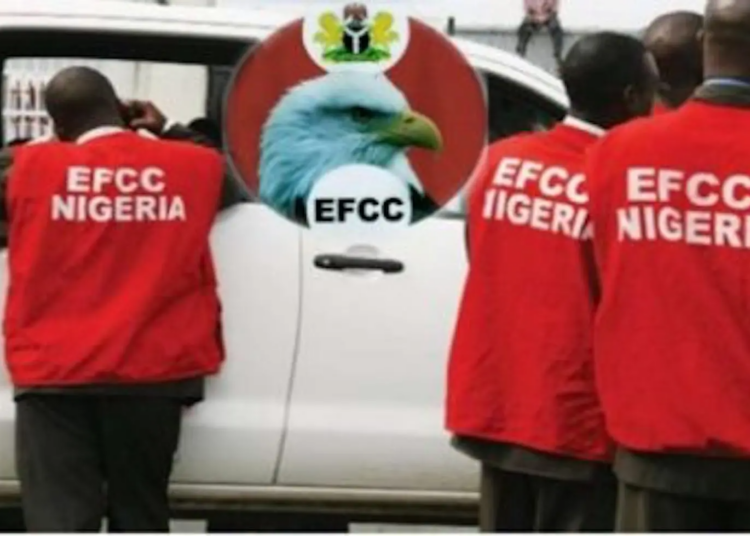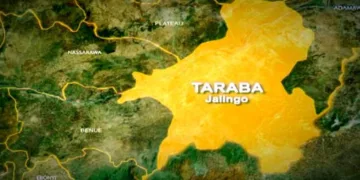The 36 state governors appear divided over the Supreme Court suit challenging the legality of the Economic and Financial Crimes Commission (EFCC).
While the suit was being heard at the Court on Tuesday, three governors attended an EFCC event, the National Summit on Cybercrime, organised with the support of the European Union-funded Rule of Law and Anti-Corruption (RoLAC II) Programme of International IDEA in Abuja.
The governors were led by the Governors’ Forum Chairman and Kwara State Governor, AbdulRahman AbdulRazaq, Katsina State Governor Dikko Umar Radda, and their Zamfara counterpart, Dauda Lawal.
Reacting to the suit, the Zamfara State governor stated that he was not involved in the case and only learned about it at the event.
He pledged his support to the EFCC and its work and promised to provide all necessary assistance, including office space, for the EFCC in Zamfara.
When asked if he was not afraid of the EFCC probing him, the governor replied, “I am not afraid of the EFCC because I have nothing to hide. It is people who have something to hide who run away from the EFCC.”
The other governors who spoke at the event expressed total support for the EFCC and commended the work it does.
The suit, instituted by the Kogi State government and 15 other states, seeks to contest the legality of the EFCC and the constitutionality of the laws establishing it.
The 15 other states allegedly joining the suit, marked SC/CV/178/2023, are Ondo, Edo, Oyo, Ogun, Nasarawa, Kebbi, Katsina, Sokoto, Jigawa, Enugu, Benue, Anambra, Plateau, Cross River, and Niger.
Supreme Court Reserves Judgement in EFCC Suit
… Imo, Bauchi, Osun join suit, as Anambra, Adamawa, Ebonyi withdraw
On Tuesday, the Supreme Court reserved judgement in the suit filed by 19 states challenging the constitutionality of the laws establishing the EFCC and two others. A date for judgement will be communicated to the parties.
In the suit, marked SC/CV/178/2023, the plaintiffs argued that the Supreme Court, in Dr Joseph Nwobike vs. the Federal Republic of Nigeria, had held that the UN Convention against Corruption was incorporated into the EFCC Establishment Act and that in enacting this law in 2004, the provisions of Section 12 of the 1999 Constitution, as amended, were not followed.
It contends that the provisions of Section 12 must be complied with when bringing a convention into Nigerian law.
According to the petitioners, the constitutional provision necessitated that the majority of the states’ Houses of Assembly agree to adopt the convention before the EFCC Act was passed, which was allegedly never done.
The states’ argument in their present suit, which the Supreme Court had reportedly corroborated in the previous case mentioned, is that the law, as enacted, could not be applied to states that never approved it, as per the provisions of the Nigerian constitution.
Hence, they argued, any institution so formed should be considered illegal.
At the resumed hearing on Tuesday, Imo, Bauchi, and Osun joined the suit as co-plaintiffs, while Anambra, Ebonyi, and Adamawa announced their decision to withdraw their suits.
The Attorney-General of the Federation, Lateef Fagbemi, SAN, who was present in court as the Defendant, sought the court’s indulgence to consider the process filed on Tuesday morning.
Justice Uwani Abba-Aji thereby granted leave to the defendant to use the reply on the point of law filed on Tuesday.
Mohammed Abdulwahab, SAN, who appeared for the first plaintiff, pointed out that the amended processes filed by the AGF differed from what was initially filed, noting that he had to refile his processes to address the fresh issues and facts.
The old processes were, therefore, struck out.
The states in the suit vs. AGF are Kogi, Kebbi, Katsina, Sokoto, Jigawa, Enugu, Oyo, Benue, Plateau, Cross River, Ondo, Niger, Edo, Bauchi, Imo, Osun, Nasarawa, Ogun, Taraba.



